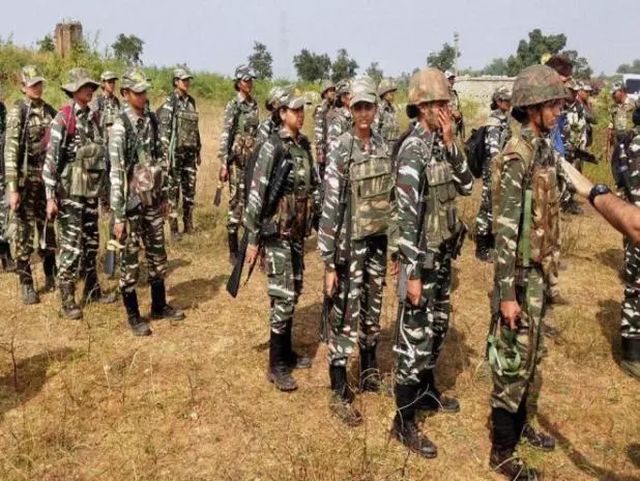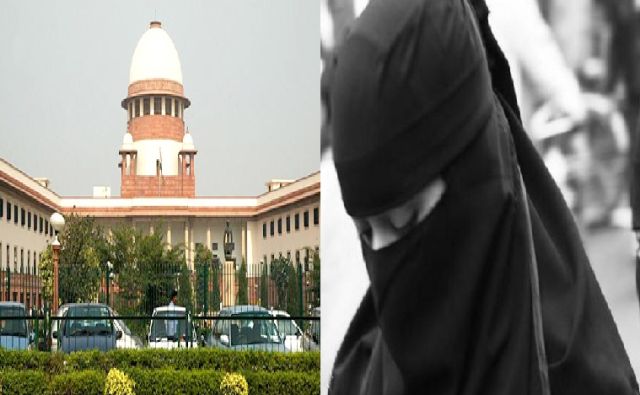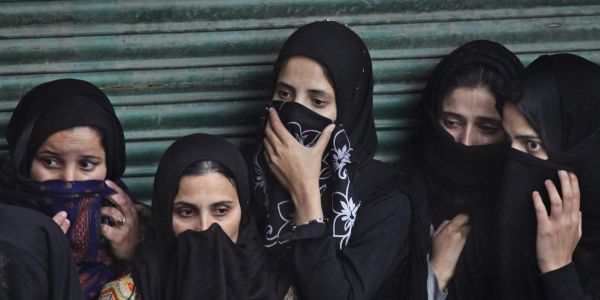
by admin | May 25, 2021 | Muslim World
 Dubai : Ride hailing applications in Saudi Arabia are preparing to hire Saudi female chauffeurs, months ahead of lifting a ban that prevents women from driving or owning driving licenses in the country, a CNN report said.
Dubai : Ride hailing applications in Saudi Arabia are preparing to hire Saudi female chauffeurs, months ahead of lifting a ban that prevents women from driving or owning driving licenses in the country, a CNN report said.
The ride hailing applications Uber and Careem recruited their first female drivers in Saudi Arabia, after the Kingdom announced plans to lift the ban on women driving by June 2018.
Female customers currently represent 80 per cent of Uber’s Saudi rider base and 70 per cent of business for its Dubai-based counterpart Careem, according to statistics shared with CNN by both companies.
The apps are a lifeline to women with no independent way to get around the Kingdom.
All drivers employed by the two firms are male — mostly Saudi nationals driving their privately-owned vehicles.
Following the ground-breaking royal decree that announced plans to lift the ban on women driving in September 2017, both companies have been preparing to hire their first female drivers.
—IANS

by admin | May 25, 2021 | Employment, Government Jobs

CRPF women team
New Delhi : Women are now eligible to serve in the Territorial Army as the Delhi High Court on Friday ruled that any provision of any Act that bars or discriminates women in the recruitment transgresses the fundamental rights of equality provided under the Constitution.
A division bench of Acting Chief Justice Gita Mittal and Justice C. Hari Shankar gave the go ahead to recruitment of women in the TA, the second line of defence after the regular Army, saying “any person in section 6 of the TA Act, shall include both men and women”.
TA comprises volunteers who get military training in order to be mobilised for the country’s defence in case of an emergency.
The court’s order came on a PIL filed by petitioner Kush Kalra, who alleged institutionalised discrimination against women for not being recruited in the TA.
Kalra had contended that the government has a duty to ensure that there is no discrimination practiced by anyone in the country and non-recruitment of female candidates who are gainfully employed is against the spirit of the Constitution.
The petition had sought that the provisions of the Act which prohibit the recruitment of women into the TA be either struck down or interpreted in such a manner that both sexes can join the organisation.
—IANS

by admin | May 25, 2021 | Corporate, Corporate Governance, Markets, News, Politics, Technology
 New Delhi : In order to make information on all government schemes and initiatives for women more easily accessible, the Ministry for Women Child and Development on Tuesday launched a new web platform – “Nari”.
New Delhi : In order to make information on all government schemes and initiatives for women more easily accessible, the Ministry for Women Child and Development on Tuesday launched a new web platform – “Nari”.
The National Repository of Information for Women was launched by WCD Minister Maneka Gandhi. It summarises over 350 schemes and other important information benefiting women.
“Nari is a niche initiative by the WCD Ministry to list all the central and state specific schemes. The platform will provide information to women on issues affecting their lives,” said the Minister at the event.
Nari will provide links to the Ministries, departments and autonomous bodies offering the schemes as well as easy access to online applications and grievance redressal.
The website will have tips on good nutrition, suggestions for health check ups, information on major diseases, tips for job search and interview, investment and savings advice.
Besides, information on crimes against women and reporting procedures. It will also have contacts of legal aid cells, simplified adoption procedures and many other facilities.
“It will endow women with the power of information to build their life skills and facilitate them in taking full advantage of the services provided by the government,” she added.
The Minister also launched another web portal – “e Samvad” which will enable the NGOs and civil society to provide their feedback, suggestions, put up grievances, share best practices and others.
“Senior officers within the WCD Ministry will be able to view the inputs and suggestions received for their concerned subject areas and appropriately respond to the NGOs.
“This will help in formulation of effective policies and measures for welfare of women and children,” Gandhi said.
—IANS

by admin | May 25, 2021 | News, Politics
 By Parmod Kumar,
By Parmod Kumar,
New Delhi : The Supreme Court stood out in 2017 for protecting and advancing the rights of citizens in more ways than one, but primarily by empowering them against any intrusion of their privacy by the State or the private sector as it elevated the right to privacy as a fundamental right.
The Supreme Court will be quoted not just for its verdict expanding the scope of the Right to Life by including within its ambit the sacrosanct Right to Privacy, but it will also be counted for its pronouncements that instant triple talaq was unconstitutional and sex with a minor wife in a child marriage amounted to rape.
The Year 2017 also saw the top court’s collegium finally putting in the public domain its deliberations on the appointment, transfer and elevation of High Court and Supreme Court judges with an explanation as to why a particular name was recommended or not.
This was viewed by some as the collegium throwing down the gauntlet for the executive, which is insisting on a provision in the Memorandum of Procedure (on appointments) that it can block a recommendation on the ground of national security but without elaborating on this.
The apex court did make serious efforts in making the government act on curbing advertisements and information on sex determination techniques available on the Internet but did not succeed to the extent that was expected.
In the end, virtually nothing was achieved in the matter as, even after a decade, says senior counsel Sanjay Parikh, and despite several court directions, the offending advertisements continue to appear on the Internet in violation of PNDT Act, resulting in a skewed girlchild ratio in some northern states.
All this apart, there is hardly an area impacting the life of the common people that escaped the top court’s scanner, be it clean air to breathe, making politics free of tainted politicians, baring the chilling insensitivity of the powers that be denying relief to the farmers faced with drought or not getting a just and reasonable minimum support price for their agriculture produce — leading to suicides.
Describing the 2017 as an “eventful year” with top court “standing up to the challenge” in addressing the issues of “great promise”, senior counsel C.A. Sundram said that Supreme Court has reaffirmed itself as the “final guardian” on any matter that affects the public at large.
“The court has also clearly established that with regards to any matter that affects the public at large they are the final guardians and have acted as a sentinel to protect the fundamental rights of the citizens,” Sundram told IANS.
“The decision in right to privacy is a sterling example,” said Sundram, a view also shared by activist lawyer Prashant Bhushan and senior counsel Colin Gonsalves, well-known for espousing social causes.
“I think the Supreme Court has done extraordinarily well on social issues — but only up to a point,” said Gonsalves.
The top court’s pronouncements to cleanse the legislatures of tainted law makers that started nearly a decade-and-a-half ago and mandating the disclosure of the assets and criminal antecedents continued in 2017 when it proposed setting up of courts to exclusively try criminal cases against the law makers and politicians.
It approved the setting of 12 exclusive courts to fast-track the trial of 1,571 pending cases against lawmakers. “Let us not get bogged down… let them set up 12 courts… It is not an end of it. Starting something is difficult.”
Recognised the world over for its role in protecting the environment, the Supreme Court acted decisively as it prohibited the registration of vehicles that do not meet BS-IV emission standards from April 1, 2017, banned the use of pet-coke and furnace oil in the National Capital Region and, above all, stopped the sale of fire crackers during Diwali celebrations — a step which earned it both laurels — for relatively less polluted post Diwali morning — and brickbats, with some equating the ban on the sale of fire crackers as an assault on the Hindu religion.
The top court also came to the rescue of home buyers who have been deprived of their rightful dwellings years beyond the due date by the big real estate companies.
Besides achievements, the top court had its troubled spots too — its tussle with the executive on one hand and with a section of bar on the other.
However, when the government sought to criticise the top court for its pro-active approach and stepping into its policy-making domain, Chief Justice Dipak Misra was more than candid saying that the “protections of the fundamental rights of every citizen was a sacrosanct duty of the judiciary conferred by the Constitution”.
The apex court seemingly succeeded in taming a section of the the bar seeking an SIT probe into the allegations of graft vis-a-vis a medical college involving a retired judge of the Orissa High Court, but not without its image taking a blow as it observed that its image has been damaged as “unnecessary doubts about the integrity of the institution have been created”.
(Parmod Kumar can be contacted at saneel2010@gmail.com)
—IANS

by admin | May 25, 2021 | News, Politics
 By Anjali Ojha,
By Anjali Ojha,
New Delhi : The proposed bill that criminalises the practice of instant divorce “empowers” Indian Muslim women by giving them a larger say in dissolving marriages, custody of minor children and the right to seek maintenance from their estranged husbands, according to the cabinet-cleared controversial legislation opposed by Muslim groups.
The bill defines triple talaq as “any pronouncement (of divorce) by a person upon his wife by words, either spoken or written or in electronic form, or in any other manner”. It proposes to make the practice a punishable offence and is set to be introduced in the Lok Sabha next week.
IANS has exclusive access to a copy of the cabinet-cleared version of the legislation drafted after the Supreme Court’s decision against the gender-discriminatory practice that is not followed even in major Muslim countries, including Saudi Arabia, Egypt and Pakistan.
The draft bill says the practice against “constitutional morality” and “gender equity” is to be considered “void and illegal”.
Anyone who pronounces instant divorce “shall be punished with imprisonment for a term which may extend to three years and a fine”, the bill proposes.
In its statement of objects and reason, the draft mentions the landmark Shayara Bano case in which the Supreme Court invalidated the practice of instant triple talaq. The statement would be read by Law Minister Ravi Shankar Prasad when he introduces the bill in the Lok Sabha to explain why the government had to formulate the legislation.
Shayara Bano, a 38-year-old woman from Uttarakhand, fought a long legal battle seeking an end to the the patriarchal custom after she claimed to have suffered for 14 years in her marriage.
“This judgement gave a boost to liberate Indian Muslim women from the age-old practice of capricious and whimsical method of divorce, by some Muslim men, leaving no room for reconciliation,” the minister says in the bill’s statement of objects.
The judgment vindicated the position taken by the government that “talaq-e-biddat”, which allows men to pronounce divorce thrice in one sitting, is against “constitutional morality, dignity of women and the principles of gender equality, as also against gender equity guaranteed under the Constitution”.
Clerics and several Muslim organisations, cutting across sects and schools of jurisprudence, protested against the Supreme Court judgment and termed the government’s stand as “uncalled for interference” in the personal laws of the community.
Ravi Shankar Prasad, however, in the bill’s objects and reasons says the All India Muslim Personal Law Board (AIMPLB), which was also a respondent in the Shayara Bano case, had contended that it was not for the judiciary to decide matters of religious practices such as talaq-e-biddat but for the legislature to make any law on the same.
“They had also submitted in the Supreme Court that they would issue advisories to the members of the community against this practice,” the minister explains.
The bill notes that “there have been reports of divorce by way of talaq-e-biddat from different parts of the country” even after the Supreme Court invalidated the practice and the assurance by AIMPLB.
“It is seen that setting aside talaq-e-biddat by the Supreme Court has not worked as any deterrent in bringing down the number of divorces by this practice among certain Muslims. It is, therefore, felt that there is a need for State action to give effect to the order of the Supreme Court and to redress the grievances of victims of illegal divorce,” the minister says.
The bill states that urgent suitable legislation was necessary “to give some relief to…the hapless married Muslim women who suffer from harassment due to talaq-e-biddat.
“This is essential to prevent this form of divorce, wherein the wife does not have any say in severing the marital relationship.
“The legislation would help in ensuring the larger constitutional goals of gender justice and gender equality of married Muslim women and help subserve their fundamental rights of non-discrimination and empowerment.”
(Anjali Ojha can be contacted at anjali.o@ians.in)
—IANS

 Dubai : Ride hailing applications in Saudi Arabia are preparing to hire Saudi female chauffeurs, months ahead of lifting a ban that prevents women from driving or owning driving licenses in the country, a CNN report said.
Dubai : Ride hailing applications in Saudi Arabia are preparing to hire Saudi female chauffeurs, months ahead of lifting a ban that prevents women from driving or owning driving licenses in the country, a CNN report said.



